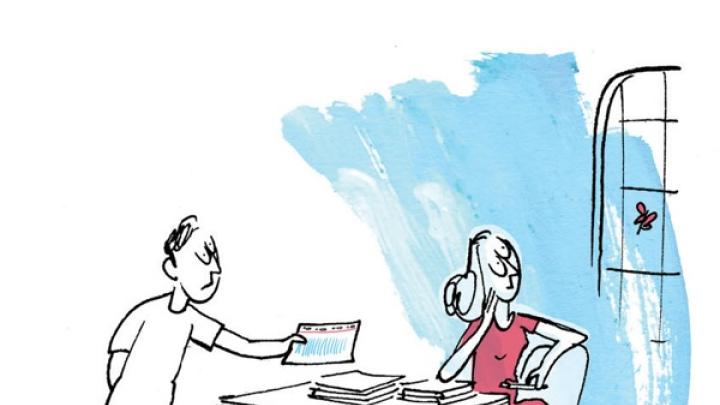Harvard was “a major step forward” for Paul B. O’Brien in learning critical listening, thinking, and communication skills. He learned well: as pastor of Saint Patrick Parish in the former industrial city of Lawrence, Massachusetts, he leads a congregation of many thousands and runs the Cor Unum Meal Center, which serves more than 200,000 meals annually. “A lot of what I do is try to help people with their day-to-day life issues—some people are very happy, but often their issues are big challenges,” he says. “I have to be the best listener I can be to try and understand someone’s perspective….You have to really hear their words and read a person’s feelings and try to understand where they are coming from. It takes logical thinking and real-life philosophical work. And then I try to communicate the revelations God has for this person’s life.”
Asked how the College can best prepare undergraduates today, O’Brien emphasizes rigorous academics coupled with close relationships with professors. He cites his sophomore government tutorial at Mather House as “an ideal academic experience”: the material was very difficult and the course required “constant writing on high-pressure deadlines.” His tutor, he adds, “was extraordinarily challenging and extraordinarily compassionate with people in the group, a perfect combination.”
Even more influential was the process of writing his senior thesis with Arthur Maass, then Thompson professor of government. “He rejected most of what I said and wrote, for months and months. Nothing was good enough: my thinking was inevitably foolishly limited and what I produced for him was surprisingly meager, and he really drove me to work so much harder,” O’Brien recalls. “Then finally there came a point when I submitted a chapter of my thesis and he said, ‘This is very good.’ And we became the closest friends; he even spent holidays with my family, until he died. He was the classic tough and demanding Harvard professor. He was that way because he cared very much about how my life turned out.” O’Brien presumes such mentorships continue today and urges Harvard to protect and nurture them—and students to pursue them. “The criticism is and was that full professors are not actively engaged with students,” he says. “But my sense was that if I wanted to pursue a connection, that was welcomed.”
O’Brien also lauds Harvard’s encouragement of extracurricular activities, which freed him to explore front-line ministering (both with immigrants in an English as a Second Language program and at a homeless shelter in Harvard Square) before becoming a priest. “I am not sure that at every school I would have been able to spend those huge numbers of hours on those activities,” he says. “A lot of my classmates are very successful in fields tied to their undergraduate extracurricular interests; their academic studies are not directly connected to what they have done with their lives.”








